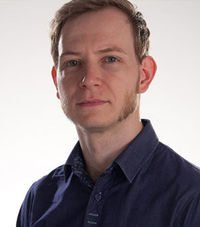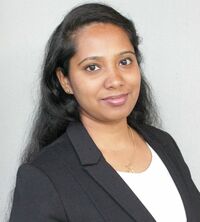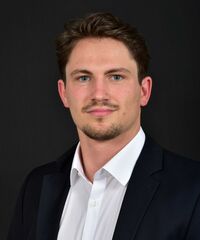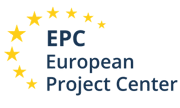
Institut für Luft- und Raumfahrt
Christian Bach
Marschnerstr. 32
01307 Dresden
Phone (): +49 (351) 463-38097
Fax: +49 (351) 463-38125
ascension@tu-dresden.de
http://ascension-itn.eu
Management
Project Coordinator: Technische Universität Dresden
Dr. Christian Bach – ASCenSIon coordinator

As head of the research group for space transportation at Technische Universität Dresden, Christian is managing all activities in the field of launcher and lander technologies, including everything related to chemical propulsion. At the same time, he works as a lecturer in the fields of space transportation, space exploration, orbital mechanics and spacecraft design methods. Due to his experience in the conduction and risk assessment of rocket engine tests, Christian has been appointed as occupational health and safety officer at the Chair of Space Systems. At the beginning of 2019, Christian finished his PhD on the system analysis and prototype development of a fluid injection induced thrust vector control for aerospike engines. Christian published a total of 25 journal and conference papers.
Adheena Gana Joseph - Project Manager

Adheena completed her M.Tech Aerospace engineering from India in 2018 and joined the space transportation group of Institute for aerospace engineering, TU Dresden as a research assistant in 2019. After having won the ‘Early career female scientist scholarship’ from the Graduate Academy of TU Dresden, she officially commenced her doctoral studies, focusing on ignition and combustion dynamics of annular aerospike rocket engines. She has also worked parallelly on MACARONIS and ASPIRER projects of the group. In addition to her R&D activities, she currently supports the ASCenSIon project as the coordinator contact.
Theodor Heutling - Project Manager

Theodor is a member of Christian’s research group for space transportation at Technische Universität Dresden. While researching and developing on lunar ISRU activities, at the same time he works as project manager for ASCenSIon. In December 2022 Theodor finished his Diploma-Thesis at TU Dresden in cooperation with CTC GmbH (an Airbus company) after two internships with theses at MTU Aero Engines AG also in the research field of additive manufacturing.
Jannis Petersen - Project Manager

Being an employee in the research group for space transportation at Technische Universität Dresden, Jannis is working on the research and development of ISRU manufactured lunar landing pads as well as being part of the project management for the ASCenSIon project. In December 2022 he graduated from TU Dresden. In his diploma thesis he conducted CFD simulations to evaluate the coolability of an aerospike engine.
 The project leading to this application has received funding from the European Union’s Horizon 2020 research and innovation programme under the Marie Skłodowska-Curie grant agreement No 860956.
The project leading to this application has received funding from the European Union’s Horizon 2020 research and innovation programme under the Marie Skłodowska-Curie grant agreement No 860956.
Follow us!
Follow us!
© Technische Universität Dresden
Institut für Luft- und Raumfahrt, Marschnerstr. 32, 01307 Dresden
Quelle: https://ascension-itn.eu/Management




